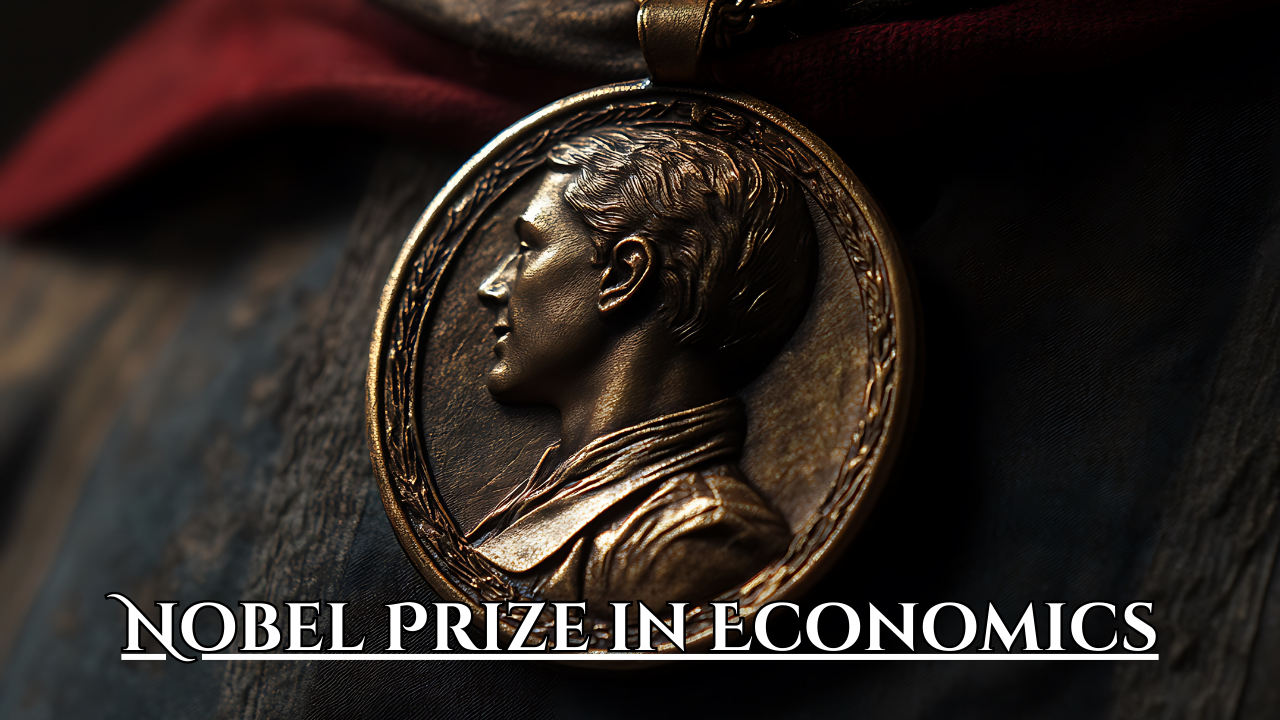Colonial Shadows: Unmasking Eurocentric Legacies in the Nobel Prize for Economics
Colonial Shadows
This essay is based on ideas from “Endorsing Settler colonialism Eurocentrism” by K. Ratish Rajawat and Dev Chandrasekhar, published in The Financial Express (29 October 2024). It argues that the Nobel Prize in Economics often supports ideas that come mainly from Europe and the West, which we call “Eurocentric.”
Recently, the Nobel Prize in Economics was awarded to Daron Acemoglu, Simon Johnson, and James A. Robinson for their ideas on “inclusive” institutions—fair systems that help societies grow. However, their ideas mostly focus on Western institutions and do not consider the long-lasting harm of colonialism on countries in Africa, Asia, and other parts of the Global South. This essay explores other views from scholars like Immanuel Wallerstein, Andre Gunder Frank, Aníbal Quijano, and Shashi Tharoor, who highlight how colonialism caused serious problems, such as environmental damage and loss of resources, in countries like Kenya, Congo, and Nigeria. These scholars show that the effects of colonialism, such as weakened economies and damaged environments, are still felt today. They argue that Western institutions are not the only path to success and that each country’s unique history and culture should guide its development. This essay streamlines their argument to critique the Nobel Laureates’ ideas.
 Problems with Eurocentric Development Models
Problems with Eurocentric Development Models
Acemoglu, Johnson, and Robinson categorise institutions as “inclusive” (helpful) or “extractive” (exploitative). They argue that economic success in countries with “inclusive” institutions comes from a European legacy of property rights, democracy, and transparency. But this view ignores how colonial powers set up unfair systems that took resources from colonies to benefit themselves. Scholar Andre Gunder Frank explains this in his Dependency Theory, especially in his book Capitalism and Underdevelopment in Latin America: Historical Studies of Chile and Brazil (New York: Monthly Review Press, 1967). Frank argues that colonialism created “underdevelopment” in the Global South by keeping colonies dependent on the wealthier Western countries. Colonialism made these regions produce raw materials, like metals or rubber, for Western factories instead of building their own industries.
Similarly, Immanuel Wallerstein’s World-Systems Theory, presented in his book The Modern World-System I: Capitalist Agriculture and the Origins of the European World-Economy in the Sixteenth Century (New York: Academic Press, 1974), divides countries into “core” (rich) and “periphery” (poor) regions. According to Wallerstein, core regions, mostly in the West, use resources from periphery countries, keeping them poor. This setup, based on colonial trading practices, still limits former colonies’ growth today. Instead of developing by selling finished goods, many former colonies remain stuck in poverty by selling only raw materials.
How Colonial Power Structures Still Affect Today’s World
Another scholar, Aníbal Quijano, explains “coloniality of power” in his work “Coloniality of Power, Eurocentrism, and Latin America” (Nepantla: Views from South, 1.3 (2000) 533-580). This concept means that colonial ideas and systems still exist today, especially through large organisations like the United Nations and the International Monetary Fund. These organisations are often led by Western countries and push Western ideas over local ones. By doing so, Quijano argues, these organisations continue to give Western countries power while former colonies struggle to be heard.
For example, when poorer countries ask the International Monetary Fund (IMF) for loans, the IMF often requires them to make economic changes that benefit Western businesses but harm local industries. This keeps former colonies dependent on Western economies, making it harder for them to build their own strong economies.
The Environmental Damage of Colonialism
One of colonialism’s most direct impacts is environmental damage, which still affects people today. For instance, in Kenya, native forests were cut down to make room for coffee plantations, which destroyed local ecosystems. Without these forests, animals lost their habitats and communities lost their resources. Similarly, in the Congo, Belgian rulers forced people to cut down forests for rubber, causing even more damage. The Congo’s rubber industry also involved dangerous forced labour, causing widespread suffering.
Scholar Utsa Patnaik’s “drain” theory in her book The Drain of Wealth: Colonialism, Neocolonialism and the Indian Economy (New Delhi: Tulika Books, 2018) further shows how colonialism took wealth from colonies and enriched Western nations. Patnaik explains that in India, the British used tax money to pay for British goods, making India poorer. This happened in Africa and Latin America too, leaving behind environmental and economic damage while transferring wealth to the West.
Economic Dependency and Structural Inequality
Frank’s Dependency Theory also discusses how colonialism enforced economic dependency. Instead of letting colonies grow their own industries, colonial powers made them focus on certain exports. For instance, Nigeria became highly dependent on oil exports, which made the country vulnerable to oil price changes. If oil prices drop, Nigeria’s economy suffers. Without other strong industries, countries like Nigeria continue to rely on Western markets. Western institutions call this “development,” but it mostly benefits Western countries, which buy raw materials cheaply and sell finished products back to the colonies at high prices.
This system keeps former colonies from developing their own goods, which would allow them to grow stronger. Instead, their economies remain tied to Western demand, keeping them in a cycle of dependency that’s hard to break. This dependency was part of colonial rule, and even though colonialism has officially ended, the effects are still present in these economic structures.
Social and Cultural Costs of Colonialism
Colonialism also damaged local cultures by pushing Western beliefs and ways of life. As Shashi Tharoor notes in his book Inglorious Empire (London: Penguin, 2027), British colonial rule in India removed local systems of government and replaced them with British policies that restricted local representation. For instance, the British Indian Civil Service was efficient but excluded most Indians from high-ranking positions. Tharoor explains that the British limited education and job opportunities for Indians to keep control, creating a divided society that still affects India today.
Quijano’s analysis of “coloniality” also explains how Western cultural standards and racial ideas were forced onto colonies. Indigenous languages, beliefs, and customs were often ignored or even banned, damaging cultural identities. Today, former colonies are still working to reclaim and restore traditional knowledge, which colonialism diminished.
The Need for Alternative Perspectives on Development
To create fairer systems, development ideas should come from former colonies, not just from Western countries. Scholars like Tharoor, Patnaik, Frank, and Wallerstein challenge Eurocentric ideas and suggest alternative ways for growth. They believe that each country’s history and culture should guide its growth rather than using the same Western models everywhere. This approach could help former colonies become more self-sufficient and address some of the damage from colonialism. As Tharoor argues in An Era of Darkness (New Delhi: Aleph, 2016), understanding how colonialism harmed other countries can help create fairer global systems. Recognising these past harms can lead to more sustainable development that benefits all countries and gives former colonies a stronger voice in shaping their futures.
Conclusion
The Nobel laureates’ ideas about “inclusive” institutions mostly focus on Western models and ignore the deep, lasting effects of colonialism. By examining other ideas, like World-Systems Theory and Dependency Theory, we get a clearer picture of how colonialism still impacts former colonies. Scholars like Tharoor and Quijano show that recognising these histories is essential for creating a fairer global economy. Moving away from Eurocentric ideas can help create a world where development truly serves all nations, respecting their unique histories, cultures, and goals.
Subscribe to our Youtube Channel for more Valuable Content – TheStudyias
Download the App to Subscribe to our Courses – Thestudyias
The Source’s Authority and Ownership of the Article is Claimed By THE STUDY IAS BY MANIKANT SINGH





Good information
[…] 2024 Nobel Prize in Literature has been awarded to Han Kang, a South Korean author, recognized for her […]